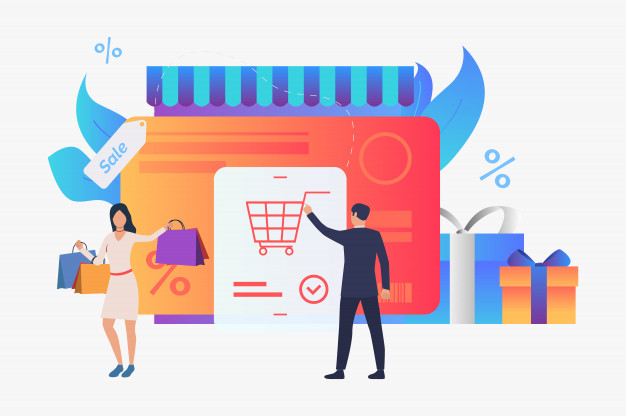
As the times change, so do consumers, especially in their behavior in choosing the products they purchase. With the wide-ranging ability to collect information about a product, the consumer base has become significantly more informed, difficult to predict, and immensely demanding, requiring real-time personalization by e-commerce businesses looking to win their purchase.
Most retail businesses invest enormously into methods of driving new traffic to their online place of business, yet many of them still suffer from a lack of insight into what their visitors need and continue to experience poor rates of conversion.
With consumers having so much information at their disposal, along with a multitude of choices of where to make their purchases, retailers have been struggling to identify the best method of retaining customers on a long-term basis. Those who have put a lot of research into the matter, have identified the leveraging of real-time driven AI as the key to the personalization they need in the eCommerce realm.
Artificial intelligence is able to compile, assess, and study customer’s shopping behaviors using machine learning, which is then reconciled into optimal strategies for personalizing the shopping experience to the particular customer including via the use of real-time on-page recommendations, banners, and promotions.
We will talk about some practical web personalization methodologies. However, to implement these practices into the design of your website, it is helpful to work with a reputable and reliable Toronto web design agency that will be best able to assist you with incorporating these strategies in a way that serves your customers best.
The Massive Importance of Website Personalization

- Tailors the experience to each customer in a unique and personal way
- Boosts average order value and conversions
- Boosting customer loyalty
- There is no human intervention needed besides the initial parameters for the AI to begin its assessment
- AI is operating around the clock, so the results can be seen shortly after implementation
- Corresponds to both sparse and large data sets
Key Components For Effective Personalization
1. Real-Time Evolving Progressive AI? Recommenders

The AI Engine is used as the intelligent and primary tool of analyzing the customers’ current behaviors, as well as their historical ones, to filter the most relevant results to that particular individual.
AI is also smart enough to strategically place recommenders in order to optimize the suggestions coherently, never duplicating the displayed content. Every experience is a new chance to learn and compile more data that adapt newly acquired information about user behavior in a flexible manner.
While many recommenders utilize website performance as their main metric for recommenders, AI leverages the action needs of a user, as well as their historical behaviors, with recommendations changing in real-time, and getting further refined with every click the user makes. In doing so, it becomes an essentially powerful mechanism for website performance.
2. Developing Optimal Personalized Campaigns

While the AI-based recommenders will deliver fully-automated recommendations to customers, the real power that can be leveraged by personalization platforms is in that it will help bolster site personalization through targeted promotional banners and awareness campaigns, tailored to the needs of their visitors based on their behavior, on and off the site in question.
When businesses are interested in suggesting particular brands, product categories, or even specific products to a particular customer target group, they would be well served in letting retailers supersede AI-based- recommendations with their own suggestions. This carries certain key benefits including the ability to spotlight brands, categories, and products that customers have searched for previously.
Aside from that, it shows the customer that the brand cares about their current and past needs, reinforcing loyalty, and seeing the products they have formerly expressed interest in the past allows business to leverage more precisely targeted promotions to those who are interested in it. These promotions permit a higher purchasing incentive and refresh (and improve) product awareness. It is also a predictive tactic that allows for cross-selling and upselling opportunities to happen based on the knowledge-based of users’ past interests.
3. Campaigns With Enhanced Precision

Dynamic segmentation is an important factor in delivering the optimal personalization experience to the site’s visitors. Knowing the visitors’ past searches and interests and interests is great, but the precision of personalization is enhanced by the visitors’ geographical location, the time of day they are viewing the product, what the conditions are in their current location, and what device they are using. The more personalized the approach, the less a visitor feels like they are just another statistic. Instead, the site becomes personalized as if specifically for their comfort and convenience.
Another vital consideration is what the visitors have already added to their carts. Based on the items already booked for imminent purchase, personalization can be further tailored to suggest complementary, supplementary, and even extra value items related to the already reserved product.
These strategies widely expand campaign rules’ boundaries, working to enhance and advance both the needs of the consumer and the business.
4. Website Portion Personalization

While the main source of personalization will be the conversion funnel in an e-commerce sales business, it is not the only aspect of a website that can benefit from personalization. For instance, a prospective customer can arrive at a website from a multitude of sources, including, but not limited to landing pages that are created specifically for affiliate and email campaigns, and those set up through AdWords. The personalized experience, therefore, must begin immediately as the user arrives at a page, regardless of the gateway that they linked therefrom.
Depending on the source of entry, particular personalization zones that feature carousels, banners, and HTML applicable to the particular user’s visit, staying consistent from the Home Page, through Product/Category pages, and many other aspects of the site.
5. Fully Personalized Searches

E-commerce personalization businesses offering services online allow for the search function on e-commerce websites to be completely controlled by the retailer. These businesses provide tools for increasing the accuracy of results while accounting for misspellings and the use of predictive text.
Integrating these predictive efforts with the existing provider search combines the efficacy of each solution, while they harmoniously tune the user’s queries into a better-refined result list.
By intelligently assessing people’s search queries, e-commerce personalization can yield brand recommendations and automated products that will display as suggestions or choices of brands that will display among the search results. It also helps to override the AI prompted brand recommendation choices with personalized campaign banners.
The following is how the methodology breaks down:
- Search for the primary area of what users are looking for
- AI-determined searches will display within both the search bar and the search results output
- Conversion and click-through rates get a boost
- The recommenders provided via AI should yield product suggestions most relevant to the searched terms and tailored to be contextualized to the user’s present and past behaviors
- The searches should be completely automated and adaptable to making adjustments in real-time
- Generate suggestions based on additional conditions with banners for the terms searched and customer segmentation to promote products, categories, brands, and open up cross-sale opportunities.
Final Thought
Personalization of websites in the e-commerce sales realm enhances the experience that the user has while visiting those sites. This, in turn, makes them more likely to be paying customers, resulting in higher conversion rates and better ROI for the vendors. While it sounds like a considerable amount to take on, San Francisco website design firms are well equipped for taking on this task. Their involvement lets you lay out your needs for the site, and they will take care of the rest while you reap the benefits of your business website’s enhanced personalization. You can read more about such agencies here.












